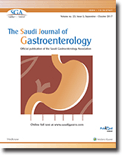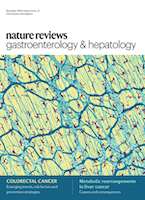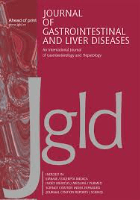
Crohns & Colitis 360
Scope & Guideline
Connecting researchers to revolutionize gastrointestinal health.
Introduction
Aims and Scopes
- Clinical Management of IBD:
Research aimed at optimizing treatment pathways, medication adherence, and clinical decision-making in the management of Crohn's disease and ulcerative colitis. - Patient-Centric Research:
Studies focusing on patient experiences, perspectives, and quality of life related to IBD, emphasizing the importance of patient engagement in treatment decisions. - Innovative Therapeutics:
Exploration of new therapeutic agents, including biologics and small molecules, and their efficacy, safety, and long-term outcomes in IBD treatment. - Epidemiological and Health Economic Studies:
Research investigating the prevalence, healthcare costs, and economic burden of IBD, providing insights into the broader impact of these diseases on healthcare systems. - Use of Technology in IBD Management:
Utilization of artificial intelligence, machine learning, and telehealth to enhance diagnostic accuracy, treatment adherence, and patient monitoring. - Nutritional and Dietary Interventions:
Exploration of the role of diet and nutrition in managing IBD symptoms and improving patient outcomes, including the effectiveness of dietary therapies.
Trending and Emerging
- Real-World Evidence and Patient Outcomes:
There is a growing emphasis on real-world studies that assess treatment effectiveness and patient-reported outcomes, highlighting the importance of understanding therapy impacts in everyday clinical settings. - Telehealth and Remote Monitoring:
Research exploring telehealth solutions and remote patient monitoring technologies is on the rise, especially in the context of increasing patient needs for accessible care and management during the COVID-19 pandemic. - Psychosocial Factors in IBD:
Emerging studies focus on the psychosocial aspects of living with IBD, including the impact of mental health on disease management and the importance of addressing psychological comorbidities. - Diversity and Health Disparities:
There is an increasing awareness and study of racial, ethnic, and geographic disparities in IBD care and outcomes, emphasizing the need for equitable healthcare access. - Dietary Interventions and Personalized Nutrition:
Research into dietary therapies and their role in managing IBD symptoms is expanding, with a focus on personalized nutritional approaches tailored to individual patient needs.
Declining or Waning
- Traditional Pharmacotherapy:
Research focused exclusively on conventional medications for IBD, such as corticosteroids and thiopurines, seems to be declining as newer therapies gain attention. - Surgical Interventions:
The volume of studies addressing surgical management of IBD, including colectomies and resections, is decreasing, possibly due to a shift towards medical management and minimally invasive techniques. - Basic Science and Mechanistic Studies:
There is less emphasis on basic science research exploring the underlying mechanisms of IBD, as the journal increasingly prioritizes clinical and translational research. - Single-Center Studies:
The prevalence of single-center studies is diminishing in favor of multicenter collaborations that provide broader data and insights into IBD management. - Conventional Epidemiological Studies:
Traditional epidemiological research focusing solely on demographic trends in IBD without integrating patient-reported outcomes or economic evaluations appears to be less frequent.
Similar Journals

Saudi Journal of Gastroenterology
Fostering innovation in clinical gastroenterology.The Saudi Journal of Gastroenterology is a premier platform dedicated to advancing research and clinical practice in the field of gastroenterology. Published by Wolters Kluwer Medknow Publications, this open-access journal has been serving the academic community since 1995 from its base in India. With an ISSN of 1319-3767 and an E-ISSN of 1998-4049, the journal allows unrestricted access to a wealth of knowledge, fostering an environment where researchers, professionals, and students can engage with cutting-edge studies. As of 2023, it is categorized in the Q3 quartile within gastroenterology, ranking #74 out of 167 in Scopus, which places it within the 55th percentile of its field. The journal aims to disseminate significant findings, clinical trials, and innovative theories that shape the understanding of gastrointestinal disorders and practices. With a commitment to quality and relevance, the Saudi Journal of Gastroenterology is pivotal for anyone seeking to enhance their knowledge and expertise in this vital area of medicine.

WORLD JOURNAL OF GASTROENTEROLOGY
Pioneering discoveries for better digestive health.WORLD JOURNAL OF GASTROENTEROLOGY, published by BAISHIDENG PUBLISHING GROUP INC, stands at the forefront of gastrointestinal research, providing a critical platform for the dissemination of high-quality studies in the field. With an impressive impact factor reflected in its Q1 rankings in both Gastroenterology and Miscellaneous Medicine, this journal is recognized for its rigorous peer-review process and commitment to advancing knowledge and practices related to digestive health. Covering comprehensive scopes from clinical advancements to innovative therapies, the journal serves an essential role for researchers, clinicians, and students, enabling them to stay updated on the latest developments and findings from 1998 through 2024. The open access model facilitates broader accessibility, ensuring that groundbreaking research reaches a global audience. The journal's ranking within the top 15% of Scopus demonstrates its significant contribution to the academic community, making it a valuable resource for advancing the science of gastroenterology.

Nature Reviews Gastroenterology & Hepatology
Exploring Breakthroughs in Liver and Digestive DisordersNature Reviews Gastroenterology & Hepatology is a premier academic journal published by NATURE PORTFOLIO, specializing in the vital fields of gastroenterology and hepatology. With an impressive impact factor and categorized in Q1 for both disciplines, this journal ranks at the top of its field, with Scopus rankings placing it in the 99th percentile for gastroenterology and hepatology. The journal aims to provide critical reviews that synthesize the latest research findings, clinical practices, and breakthroughs, catering to researchers, healthcare professionals, and students alike. With its wide-ranging access options, it promotes the dissemination of knowledge essential for advancements in understanding digestive and liver disorders. The journal has been committed to academic excellence since its convergence in 2009, continuing to shape the future of gastroenterological and hepatological research through rigorous peer-reviewed content.

Journal of Gastrointestinal and Liver Diseases
Advancing Knowledge in Gastrointestinal and Liver HealthThe Journal of Gastrointestinal and Liver Diseases, published by MEDICAL UNIV PRESS in Romania, serves as a pivotal platform for the dissemination of significant research in the fields of gastroenterology and hepatology. Established in 2006, this journal has evolved over the years, currently holding a Q3 rank in Gastroenterology and a Q2 rank in Medicine (miscellaneous), reflecting its commitment to high-quality scholarship and impactful contributions to medical science.
With an ISSN of 1841-8724 and an E-ISSN of 1842-1121, the journal engages a diverse readership of researchers, clinicians, and students passionate about advancing knowledge in gastrointestinal and liver health. While it currently does not operate under an open access model, the journal remains a vital resource for those seeking to stay updated on the latest developments and emerging trends in the field. As it converges towards a broader impact, projected through its coverage until 2024, the Journal of Gastrointestinal and Liver Diseases continues to contribute to the academic landscape, encouraging innovation and comprehensive understanding in digestive health.

GUT
Catalyzing Discoveries in the World of GUT HealthGUT is a premier journal in the field of gastroenterology, published by the esteemed BMJ Publishing Group. With a rich history dating back to 1960 and an impressive convergence of research expected to continue through 2024, GUT has established itself as a cornerstone of academic discourse in the gastrointestinal sciences. The journal boasts a remarkable impact factor, positioning it in the Q1 category for gastroenterology with an outstanding rank of #3 out of 167 in its Scopus ranking, reflecting its 98th percentile status among peers. Although it does not currently offer open access options, GUT remains dedicated to disseminating high-quality research, reviews, and clinical studies that advance the understanding of digestive health. Published in the United Kingdom, GUT serves as an essential resource for researchers, clinicians, and students aiming to stay at the forefront of innovations and developments in the field.

Pediatric Gastroenterology Hepatology & Nutrition
Advancing pediatric health through innovative research.Pediatric Gastroenterology Hepatology & Nutrition is a pivotal academic journal published by the Korean Society of Pediatric Gastroenterology & Nutrition, focusing on the critical fields of pediatric gastroenterology, hepatology, and nutrition. Located in South Korea, this journal aims to disseminate high-quality research, review articles, and clinical studies to advance knowledge and practice in the care of children with gastrointestinal and nutritional disorders. With a Converged Years span from 2012 to 2024 and categorized in the Q2 and Q3 quartiles in 2023 across multiple related fields, the journal holds a significant position within the academic community, reflecting its impactful contribution to the discipline. Although currently not open access, the journal ensures that content is accessible to a broad audience through various institutional subscriptions. The journal appeals to researchers, healthcare professionals, and students alike, providing an essential platform for the exchange of innovative ideas and research findings aimed at improving pediatric patient care.

Gastroenterology Research
Exploring the complexities of the gastrointestinal system.Gastroenterology Research is a prominent scholarly journal dedicated to advancing the field of gastroenterology. Published by ELMER PRESS INC, this journal serves as a vital platform for disseminating innovative research, clinical findings, and comprehensive reviews that explore the complexities of the gastrointestinal system. With an ISSN of 1918-2805 and an E-ISSN of 1918-2813, it reaches a global audience of researchers, healthcare professionals, and students eager to contribute to or keep abreast of the latest developments in gastroenterology. Though details such as the H-index and Scopus rankings are currently unspecified, the journal's commitment to quality and impact in the medical research community is evident. Gastroenterology Research aims to foster collaboration and knowledge sharing among experts, ultimately improving patient care and outcomes within this critical area of health science. Explore the cutting-edge studies published within its pages and engage with a community passionate about the investigation and treatment of gastrointestinal diseases.

Intestinal Research
Advancing the Frontiers of GastroenterologyIntestinal Research is an influential open-access journal dedicated to advancing knowledge in the field of gastroenterology. Published by the Korean Association for the Study of Intestinal Diseases, this journal has been providing valuable insights into intestinal health since its inception in 2003. With an impressive impact factor and a current ranking of Q2 in the gastroenterology category, it is recognized among the top journals in its field, achieving a remarkable 82nd percentile in Scopus rankings. Based in South Korea, the journal's mission is to facilitate research and discussions on intestinal diseases, pathophysiology, innovative treatments, and advancements in care practices. By offering open access, Intestinal Research ensures that critical findings are readily available to researchers, healthcare professionals, and students alike, fostering global collaboration and sharing of knowledge. The journal accepts contributions that reflect the latest developments and foster deep understanding within the intestinal disease research community.

Minerva Gastroenterology
Driving Progress in Gastroenterology and BeyondMinerva Gastroenterology, published by EDIZIONI MINERVA MEDICA, is a notable academic journal dedicated to advancing the field of gastroenterology and related disciplines. With an ISSN of 2724-5985 and an E-ISSN of 2724-5365, this journal gathers innovative research from diverse areas including internal medicine, endocrinology, and metabolism. Though characterized by its open-access policies, Minerva Gastroenterology aims to provide a platform for high-quality scholarly articles with an emphasis on critical reviews, clinical studies, and translational research. Since its inception in 2021, the journal has managed to secure a reputation reflected in its Q3 rank across multiple categories in 2023, as well as its standing in Scopus rankings, positioning it in the 45th to 47th percentile among renowned medical journals. Situated in Turin, Italy, it fosters collaboration and knowledge-sharing among researchers and practitioners, making it an essential resource for those seeking to deepen their understanding of gastroenterological conditions and enhance clinical practices.

INFLAMMATORY BOWEL DISEASES
Leading the way in inflammatory bowel disease research.INFLAMMATORY BOWEL DISEASES is a premier journal published by Oxford University Press, Inc., dedicated to advancing research within the fields of gastroenterology and immunology. With an impressive impact factor reflecting its status as a Q1 category journal in both gastroenterology and immunology and allergy, it ranks 17th out of 167 in gastroenterology and 53rd out of 233 in immunology, underscoring its influence and authority within the scientific community. Since its inception in 1995 and continuing through to 2024, the journal has become an essential resource for researchers, healthcare professionals, and students, serving as a platform for the latest findings in the diagnosis, treatment, and management of inflammatory bowel diseases. While the journal operates under a subscription-based model, it is recognized for its rigorous peer-review process and commitment to publishing high-caliber, impactful studies that contribute significantly to understanding and treating these complex conditions.